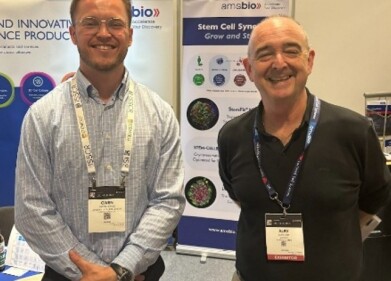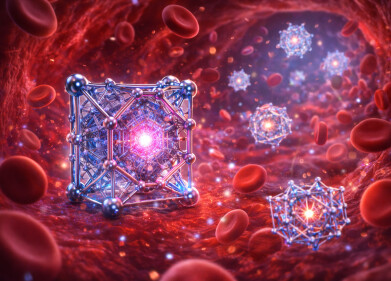News
Charity Receives Largest Intake of Grant Applications
Mar 25 2010
Scientists are showing an increasing interest in using and developing new techniques without the use of animals to advance medical research, said the Dr Hadwen Trust for Humane Research (DHT). The charity has received a record number of applications from scientists seeking funding to develop nonanimal techniques in medical research but says that more funding is needed to harness the full potential of these technologies. The leading medical research charity, which funds exclusively non-animal techniques, currently awards up to £700,000 in grants annually in the UK.
This year the charity received 120 research applications for funding, a record 500% increase on the previous year. This is the highest number of applications ever received in the DHT’s forty year history; a 114% increase compared to the highest intake in 2003. The DHT says that such an increasing interest from scientists from all fields to advance medical research and replace animal experiments is a very positive and significant step forward. “The limitations of using animals are becoming increasingly acknowledged within the scientific community. This is reflected by the increase in the number of grant applications where applicants
are motivated by a desire to improve the quality of their research and replace animals with more human-relevant advanced methods and technologies,” said Dr Sebastien Farnaud, Science Director of the DHT. “The ethical responsibility to tackle animal suffering is also a key factor, with many of the proposals having the potential to replace the use of thousands of animals each year.” The charity’s current research portfolio includes development of further threedimensional human tissue structures with targeted gene disruptions that replace genetically modified mice; use of fibroblasts as a new disease model for Huntington’s disease; and an advanced brain research tool called dual-site transcranial magnetic stimulation (TMS), instead of invasive experiments on primates, to study brain function in humans.
However, even as the UK’s largest charity funder of non-animal replacement research, the Dr Hadwen Trust will not be able to fund each and every highly relevant application as more funding is needed to develop the full potential and make use of such advanced research.
Kailah Eglington, Chief Executive of the Dr Hadwen Trust said:
“Non-animal replacement techniques represent some of the most exciting and advanced technological approaches that medical science has to offer, so it is encouraging to see an increased interest from more scientists across all fields. At the same time, it’s disheartening to see that so many of these replacement solutions might never be explored because of insufficient funding. We call upon the public to help raise more vital funds to pursue better and more ethical medical research.”
To find out more about the DHT and how you can participate and make a difference, go to www.drhadwentrust.org or www.scienceroom.org.
Digital Edition
Lab Asia Dec 2025
December 2025
Chromatography Articles- Cutting-edge sample preparation tools help laboratories to stay ahead of the curveMass Spectrometry & Spectroscopy Articles- Unlocking the complexity of metabolomics: Pushi...
View all digital editions
Events
Jan 21 2026 Tokyo, Japan
Jan 28 2026 Tokyo, Japan
Jan 29 2026 New Delhi, India
Feb 07 2026 Boston, MA, USA
Asia Pharma Expo/Asia Lab Expo
Feb 12 2026 Dhaka, Bangladesh



















